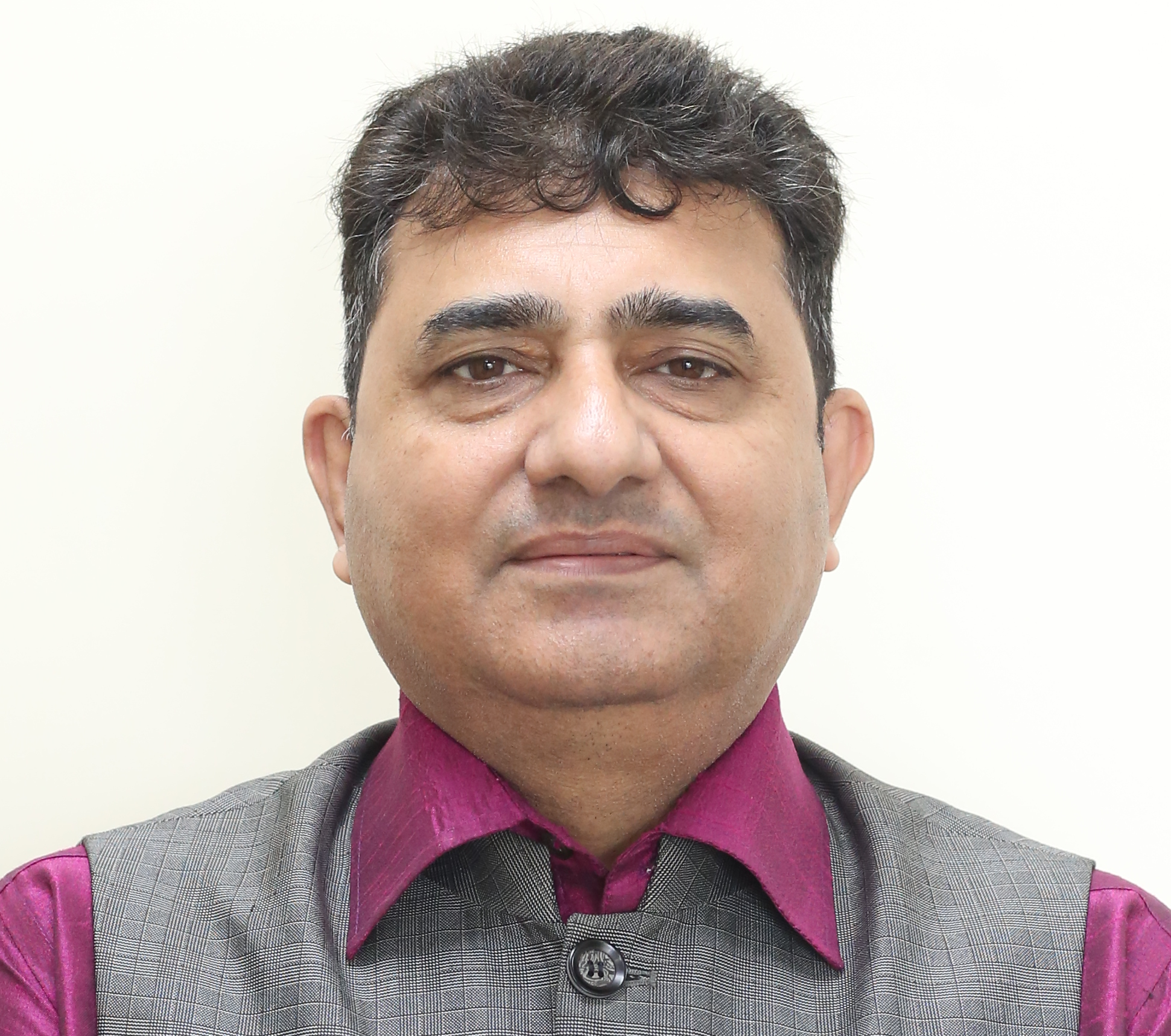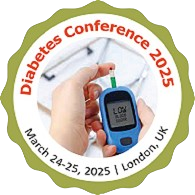Sessions and Tracks
Track-1: Diabetes
Diabetes is brought about by the lowered creation of insulin or by a lowered capacity to use insulin. Insulin, the hormone delivered by the beta cells in the pancreas, permits (glucose) cells to have the capacity to use glucose. This hormone is abecedarian for glucose to go from the blood to within the body cells. With deficient insulin, glucose develops in the circulatory system as opposed to going into the cells. The body can not use glucose for vitality in malignancy of the elevated quantities of glucose in the circulatory system. This causes unreasonable thirst, pee, and appetite, which are the most extensively honored side goods of diabetes. The cornucopia of sugar stays in the blood and is also vacated by the feathers. This sickness happens in a many structures, yet the most well- known are Type I Diabetes or Juvenile Onset Diabetes or Insulin-Dependent Diabetes Mellitus (IDDM), Type II or Non-Insulin Dependent Diabetes Mellitus (NIDDM), and Gestational.
Track-2: Endocrinology
Endocrinology is a branch of biology and drug dealing with the endocrine system, the endocrine system is a network of glands that produce and release hormones. These hormones are in charge of several functions in the body, from heartbeat to tissue growth to the creation of new life. These glands that produce and release hormones that help control numerous important body functions, including the body's capability to change calories into energy that powers cells and organs. The endocrine system influences how your heart beats, how your bones and apkins grow, indeed your capability to make a baby. It plays a vital part in whether or not you develop diabetes, thyroid complaint, growth diseases, sexual dysfunction, and a host of other hormone- related diseases.
Track-3: Neuroendocrinology
Exploring the intricate interplay between the endocrine system and the central nervous system, elucidating neuroendocrine pathways, and their roles in regulating homeostasis, stress responses, mood, behavior, and reproductive function.
Track-4: Reproductive Endocrinology
Reproductive endocrinology focuses on the hormonal aspects of reproductive health in both men and women. Specializing in the study and treatment of hormonal issues related to fertility and reproduction, reproductive endocrinologists address conditions such as infertility, polycystic ovary syndrome (PCOS), and hormonal imbalances affecting reproductive organs. Through hormonal interventions and assisted reproductive technologies, these specialists play a crucial role in helping individuals and couples achieve and maintain successful pregnancies. Reproductive endocrinology encompasses a range of treatments to support and optimize the reproductive journey.
Track-5: Pediatric Endocrinology
Pediatric endocrinology is a remedial subspecialty managing couples of the endocrine organs, for example, kinds of physical development and sexual advancement in adolescence, diabetes, and some further. By age, pediatric endocrinologists, contingent on the age range of the cases they treat, tend to cases from the outset to late youth and immature majority. By illness, the most extensively honored sickness of the speciality is sort Type1 diabetes, which more frequently than not represents no lower than half of a regular clinical practice. The following most normal issue is development issues, particularly those manageable to development hormone treatment. Pediatric endocrinologists are generally the essential doctors needed in the remedial consideration of babies and kiddies with intersex issues. The claim to fame also manages hypoglycaemia and different types of hyperglycaemia in adolescence, kinds of pubescence, too another adrenal, thyroid, and pituitary issues. Multitudinous pediatric endocrinologists have interests and chops in the bone digestion system, lipid digestion system, immature gynecology, or natural blunders of the digestion system.
Track-6: Cardiovascular Endocrinology
Cardiovascular endocrinology explores the intricate connection between hormones and the cardiovascular system. This interdisciplinary field investigates how hormonal imbalances can impact heart health and contribute to conditions like hypertension, atherosclerosis, and heart failure. Understanding the hormonal regulation of blood pressure, lipid metabolism, and glucose homeostasis is crucial for developing effective strategies to prevent and manage cardiovascular diseases. Cardiovascular endocrinology plays a pivotal role in enhancing our comprehension of the intricate interplay between endocrine factors and heart function, paving the way for innovative approaches to cardiovascular care.
Track-7: Thyroid Disorders
Thyroid disorders involve imbalances in the thyroid gland, impacting hormone production and metabolism. Conditions such as hypothyroidism (underactive thyroid) and hyperthyroidism (overactive thyroid) can lead to a range of symptoms including fatigue, weight changes, and mood fluctuations. Diagnosis typically involves thyroid function tests, and treatment may include medication, lifestyle adjustments, or, in some cases, surgical intervention to manage these disorders and restore hormonal equilibrium. Regular monitoring and proper management are essential for maintaining thyroid health and overall well-being.
Track-8: Advances in Endocrinology Metabolism
Treat patients with hyperparathyroidism, Address particular issues of Graves' disease including thyrocardiac ailment, ophthalmopathy, dermopathy, delayed pregnancy, mammary, Use the 2015 ATA rules in the administration of their patients with thyroid knobs and thyroid malignancy determination, Determine when to do atomic hereditary testing amid assessment of a thyroid knob, Identify the ordinarily experienced adrenal and pituitary issue (clinical cases), Counsel patients on ripeness issues while being dealt with for growth, Provide the best treatment for transgender patients, Use the new lipid bringing operators and how down to oversee quiet who can't take statins. Intrinsic adrenal hyperplasia (CAH) are any of a few autosomal latent sicknesses coming about because of changes of qualities for catalysts intervening the biochemical strides of creation of mineralocorticoids, glucocorticoids or sex steroids from cholesterol by the endocrine organs (steroid beginning).
Track-9: Metabolism, Endocrinology & Diabetes
Endocrinology is an internal drug discipline that focuses on the diagnosis and treatment of endocrine (glandular) system conditions and metabolic dysfunction. Hypothalamic diseases, Pituitary conditions, Pancreatic endocrine complaint (diabetes mellitus), Bone Metabolism, and Lipid metabolism are all common judgments and treatments for endocrinologists.
Metabolism refers to the chemical responses that occur within the cells of living organisms and are necessary for their survival. The processes that do in the body after food is consumed are appertained to as metabolism in this companion. Persons with diabetes have a metabolism that's nearly identical to that of people who don't have diabetes.
Track-10 : Gestational Diabetes: Maternal and Fetal Health
Gestational diabetes mellitus (GDM) is a form of diabetes that occurs during pregnancy, typically in the second or third trimester. It is characterized by glucose intolerance and elevated blood sugar levels. Proper management of GDM is crucial for the health of both the mother and the fetu. GDM risk is higher in women with obesity, a family history of diabetes, advanced maternal age, a previous history of GDM, or polycystic ovary syndrome (PCOS). Universal screening is usually conducted between 24 and 28 weeks of gestation using an oral glucose tolerance test (OGTT). A balanced diet with controlled carbohydrate intake and regular physical activity are the first-line treatments. Regular monitoring of blood sugar levels helps ensure they remain within target ranges. Women with GDM are at an increased risk of developing preeclampsia, a condition characterized by high blood pressure and potential organ damage. Infants should be monitored for hypoglycemia and other potential complications shortly after birth. Breastfeeding is encouraged as it may help regulate the infant's blood sugar levels. By understanding and managing gestational diabetes, healthcare providers can significantly improve outcomes for both mothers and their babies, ensuring a healthier pregnancy and reducing the risk of long-term complications.
Track-11: Global Diabetes Market
The global diabetes market encompasses a dynamic landscape of pharmaceuticals, devices, and technologies aimed at managing and treating diabetes. It includes insulin therapies, oral antidiabetic drugs, glucose monitoring devices, and innovative technologies. Continuous research and development address the evolving needs of the growing global diabetic population, fostering market growth and advancements.
Track-12: Mental Health in Endocrine Care
Examining the bidirectional relationship between mental health disorders and endocrine conditions, addressing the impact of hormonal imbalances on mood, cognition, and behavior, and integrating mental health considerations into comprehensive endocrine care.
Track-13: Radiological Approaches in Endocrinology
Exploring the utility, indications, and interpretations of various radiological imaging modalities in diagnosing and monitoring endocrine disorders, from ultrasound to nuclear medicine, and discussing advancements in radiological techniques and their applications.
Track -14: Dietary Interventions in Endocrinology
Investigating the impact of dietary factors and interventions on endocrine health, including nutritional approaches to diabetes management, weight loss, metabolic syndrome, and other hormone-related conditions, and exploring dietary guidelines and lifestyle modifications.
Track-15: Steroid Hormones and Receptors
Steroid hormones are a class of hormones derived from cholesterol, playing crucial roles in various physiological processes. They include hormones such as estrogen, progesterone, and testosterone. These hormones exert their effects by binding to specific receptors inside cells, forming hormone-receptor complexes that regulate gene expression and modulate cellular functions. The intricate interplay between steroid hormones and their receptors is fundamental to the regulation of growth, development, and reproductive processes in the body.
Market Analysis
General trends and considerations that might have influenced the Diabetes Conference 2025:
Continued Technological Advancements: The diabetes and endocrinology market likely continued to see advancements in technologies for diabetes management. This could include improvements in continuous glucose monitoring (CGM) systems, insulin delivery devices, and other digital health solutions.
Increased Focus on Remote Monitoring and Telehealth: The ongoing COVID-19 pandemic likely accelerated the adoption of telehealth solutions and remote monitoring in diabetes care. This shift aimed to ensure continuous care for patients while minimizing in-person interactions.
Biopharmaceutical Innovations: Pharmaceutical companies were likely actively engaged in developing new drugs and therapies for diabetes and related endocrine disorders. Advances in insulin formulations, incretin-based therapies, and other medications may have continued.
Global Diabetes Prevalence and Public Health Initiatives: Diabetes remained a global health concern, and public health initiatives aimed at addressing lifestyle factors contributing to diabetes were likely in place. Awareness campaigns and efforts to improve early detection and management might have been ongoing.
Personalized Medicine: The trend toward personalized medicine in endocrinology may have continued to gain traction. Tailoring treatment plans based on individual patient characteristics, including genetic factors, likely remained a focus for improving treatment outcomes.
Regulatory Landscape: Regulatory decisions and guidelines continued to shape the market. Approvals for new medications and technologies, as well as changes in reimbursement policies, could have influenced the industry.
For the most recent and specific market analysis on Diabetes Conference 2025, consider consulting reports from reputable market research firms, industry journals, and healthcare organizations. Financial reports and statements from key companies in this sector may also provide insights into market dynamics and trends.
























